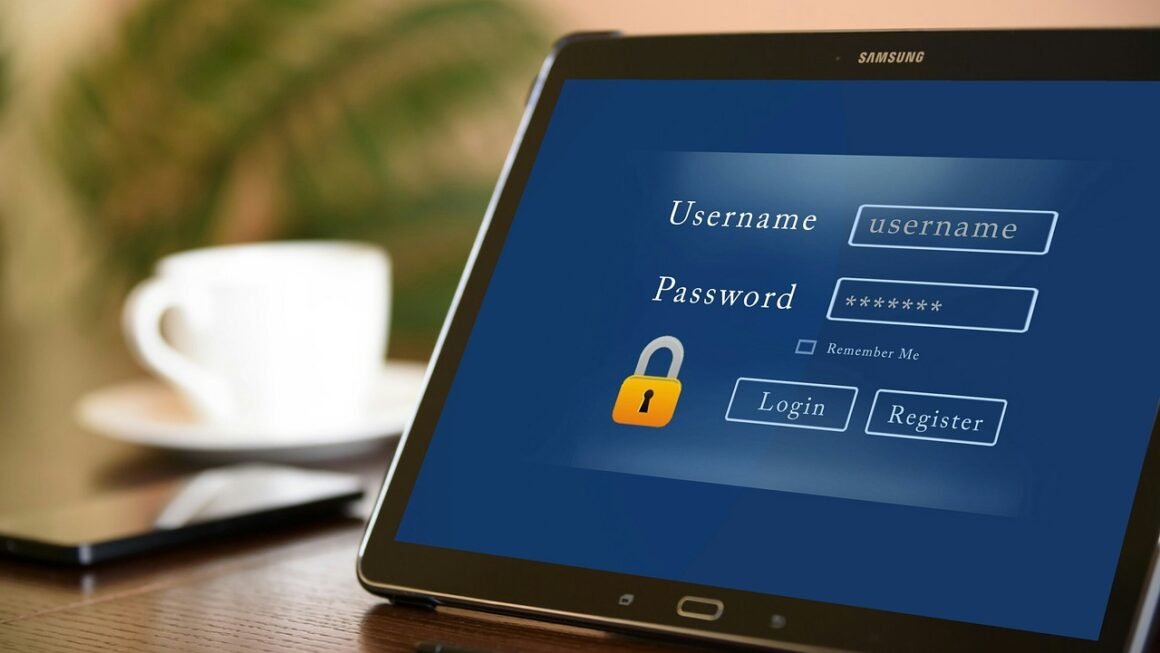In today’s interconnected world, protecting your digital life is paramount. Antivirus software is more than just a program; it’s your first line of defense against a constantly evolving landscape of cyber threats. From safeguarding personal data to ensuring the smooth operation of your devices, understanding and utilizing the right antivirus solution is crucial. This blog post delves into the essentials of antivirus software, exploring its features, benefits, and how to choose the best option for your needs.
Understanding Antivirus Software
What is Antivirus Software?
Antivirus software is a program designed to prevent, detect, and remove malicious software (malware) from computers, servers, and mobile devices. Malware encompasses a wide range of threats, including viruses, worms, trojan horses, ransomware, spyware, and adware. Antivirus software works by scanning files and directories, monitoring system behavior, and comparing detected code to known malware signatures.
How Antivirus Software Works
Antivirus software employs various techniques to protect your system:
- Signature-Based Detection: This is the traditional method, where the software identifies malware by comparing files against a database of known virus signatures.
- Heuristic Analysis: This approach analyzes the behavior of files and programs to identify suspicious activities that may indicate a new or unknown malware threat. For example, if a program attempts to modify critical system files, it might be flagged as potentially malicious.
- Real-Time Scanning: This feature constantly monitors your system in the background, scanning files as they are accessed or downloaded.
- Behavioral Monitoring: This monitors the actions of running programs and identifies processes that exhibit malicious behavior, such as attempting to encrypt files (a common ransomware tactic).
The Importance of Regular Updates
Antivirus software is only effective if its virus definitions and scanning engine are up-to-date. New malware strains are constantly being developed, so regular updates are essential to ensure that the software can recognize and protect against the latest threats. Most antivirus programs offer automatic updates, which should be enabled to ensure continuous protection. Failing to update leaves your system vulnerable to newly released threats.
Benefits of Using Antivirus Software
Protection Against Malware
The primary benefit is, of course, protection from malware. Antivirus software protects you from:
- Viruses: Programs that replicate and spread to other files and systems.
- Worms: Self-replicating programs that can spread across networks without user interaction.
- Trojan Horses: Malicious programs disguised as legitimate software.
- Ransomware: Malware that encrypts your files and demands a ransom for their decryption. Example: Locky, WannaCry
- Spyware: Software that secretly monitors your activity and collects personal information.
- Adware: Software that displays unwanted advertisements.
Data Protection and Privacy
Antivirus software helps protect your personal data and privacy by preventing malware from stealing sensitive information such as passwords, credit card numbers, and personal documents. Features like webcam protection and keylogger blocking further enhance your privacy. A solid antivirus can prevent identity theft and financial fraud.
Improved System Performance
While some older antivirus programs were known for slowing down systems, modern antivirus software is designed to be lightweight and efficient. By preventing malware infections, antivirus software helps maintain the smooth operation of your computer. Malware can consume significant system resources, leading to sluggish performance. Removing these threats can significantly improve your device’s speed and responsiveness.
Enhanced Security While Browsing Online
Many antivirus suites include features that enhance your online security, such as:
- Web Filtering: Blocking access to known malicious websites.
- Phishing Protection: Identifying and blocking phishing attempts.
- Download Scanning: Scanning downloaded files for malware.
- Safe Browsing Extensions: Providing real-time protection against online threats.
Protecting Against Identity Theft
By preventing spyware and keyloggers, antivirus software helps safeguard your personal information from being stolen and used for identity theft. Many antivirus programs also include features like password managers and secure browsers to further enhance your online security.
Choosing the Right Antivirus Software
Understanding Your Needs
Before choosing an antivirus program, consider your specific needs and usage patterns. Ask yourself:
- What operating system do I use (Windows, macOS, Android, iOS)?
- How many devices do I need to protect?
- What level of protection do I need (basic, standard, premium)?
- Do I need additional features like a VPN, firewall, or parental controls?
Key Features to Look For
When evaluating antivirus software, look for the following key features:
- Real-Time Scanning: Continuous monitoring of your system for threats.
- Automatic Updates: Regularly updated virus definitions to protect against the latest malware.
- Heuristic Analysis: Ability to detect new and unknown threats based on their behavior.
- Web Protection: Blocking malicious websites and phishing attempts.
- Email Scanning: Scanning incoming and outgoing emails for malware.
- Firewall: A network security system that monitors and controls incoming and outgoing network traffic based on predetermined security rules.
- Ransomware Protection: Specific features to protect against ransomware attacks, such as file backup and recovery.
Free vs. Paid Antivirus Software
Free antivirus software can provide basic protection against common threats, but it often lacks advanced features and may display advertisements. Paid antivirus software typically offers more comprehensive protection, including:
- Advanced threat detection: Using more sophisticated algorithms and techniques.
- Firewall protection: Monitoring and controlling network traffic.
- Ransomware protection: Specific defenses against ransomware attacks.
- Technical support: Access to customer support if you encounter problems.
- Additional features: VPN, password manager, parental controls, etc.
While free antivirus software can be a good starting point, paid antivirus software generally provides a higher level of security and peace of mind. Consider the value of your data and the potential cost of a malware infection when making your decision.
Research and Compare Options
Before making a purchase, research and compare different antivirus software options. Read reviews from independent testing organizations and users. Look for products that have a proven track record of effectively detecting and removing malware. Sites like AV-Test and AV-Comparatives offer regular, independent testing of antivirus software.
Maintaining a Secure System
Regular Scanning
Even with real-time scanning enabled, it’s a good idea to perform regular manual scans of your system to ensure that no threats have been missed. Schedule regular scans, especially after downloading new files or visiting potentially risky websites.
Practicing Safe Browsing Habits
Antivirus software is just one layer of security. It’s important to practice safe browsing habits to minimize your risk of infection:
- Be cautious about clicking on links or opening attachments from unknown senders.
- Avoid downloading software from untrusted sources.
- Keep your operating system and software up-to-date with the latest security patches.
- Use strong passwords and avoid reusing the same password for multiple accounts.
- Be wary of phishing scams and other social engineering tactics.
Regularly Backing Up Your Data
In the event of a malware infection or other data loss incident, having a recent backup of your data can be invaluable. Back up your important files and documents to an external hard drive, cloud storage, or other secure location. Regularly scheduled backups will help protect your data.
Conclusion
Antivirus software is an essential tool for protecting your digital life. By understanding how it works, choosing the right solution for your needs, and practicing safe computing habits, you can significantly reduce your risk of malware infection and data loss. Remember to prioritize regular updates, combine antivirus protection with cautious online behavior, and back up your data frequently. Staying vigilant in the face of evolving cyber threats is the key to maintaining a secure and worry-free digital experience.



